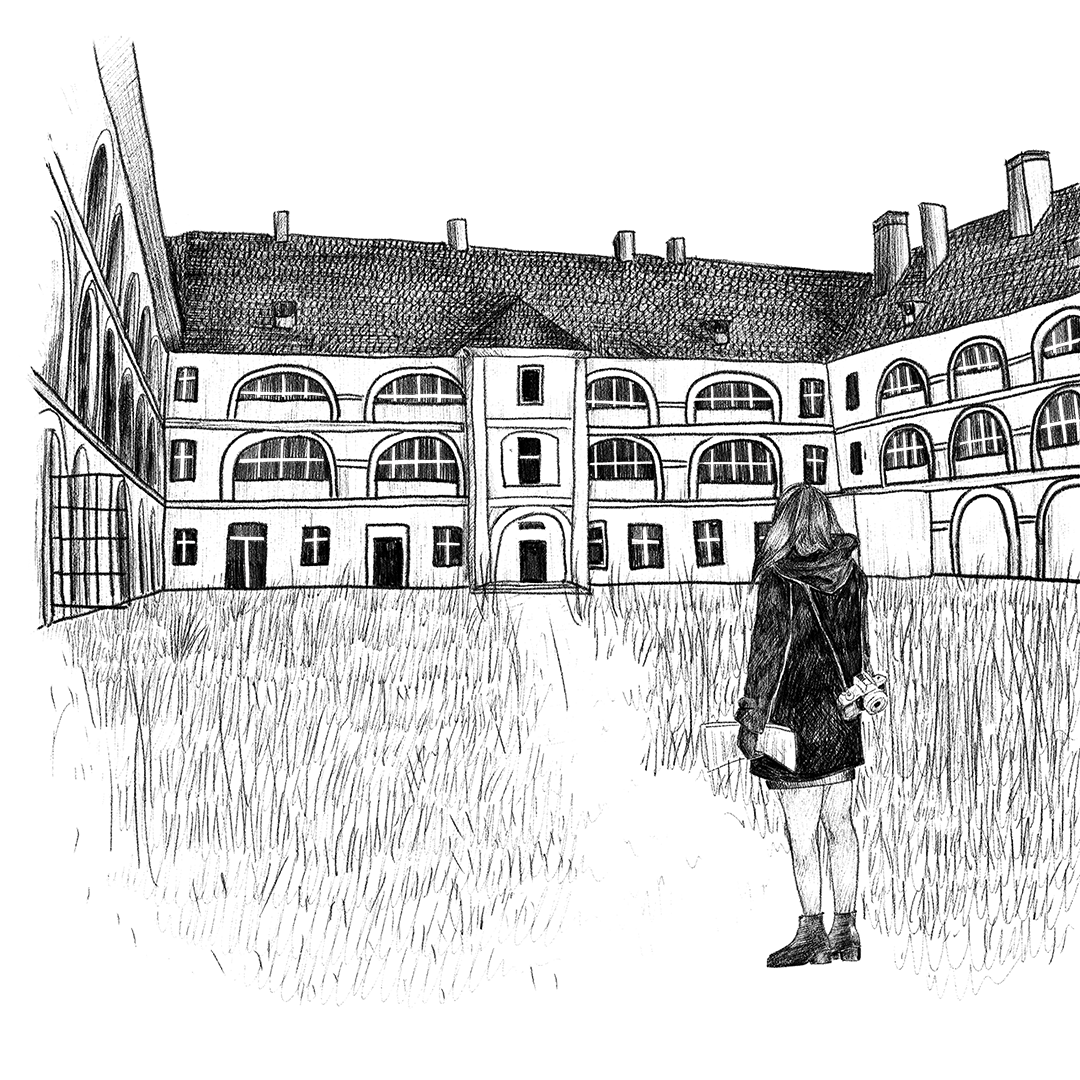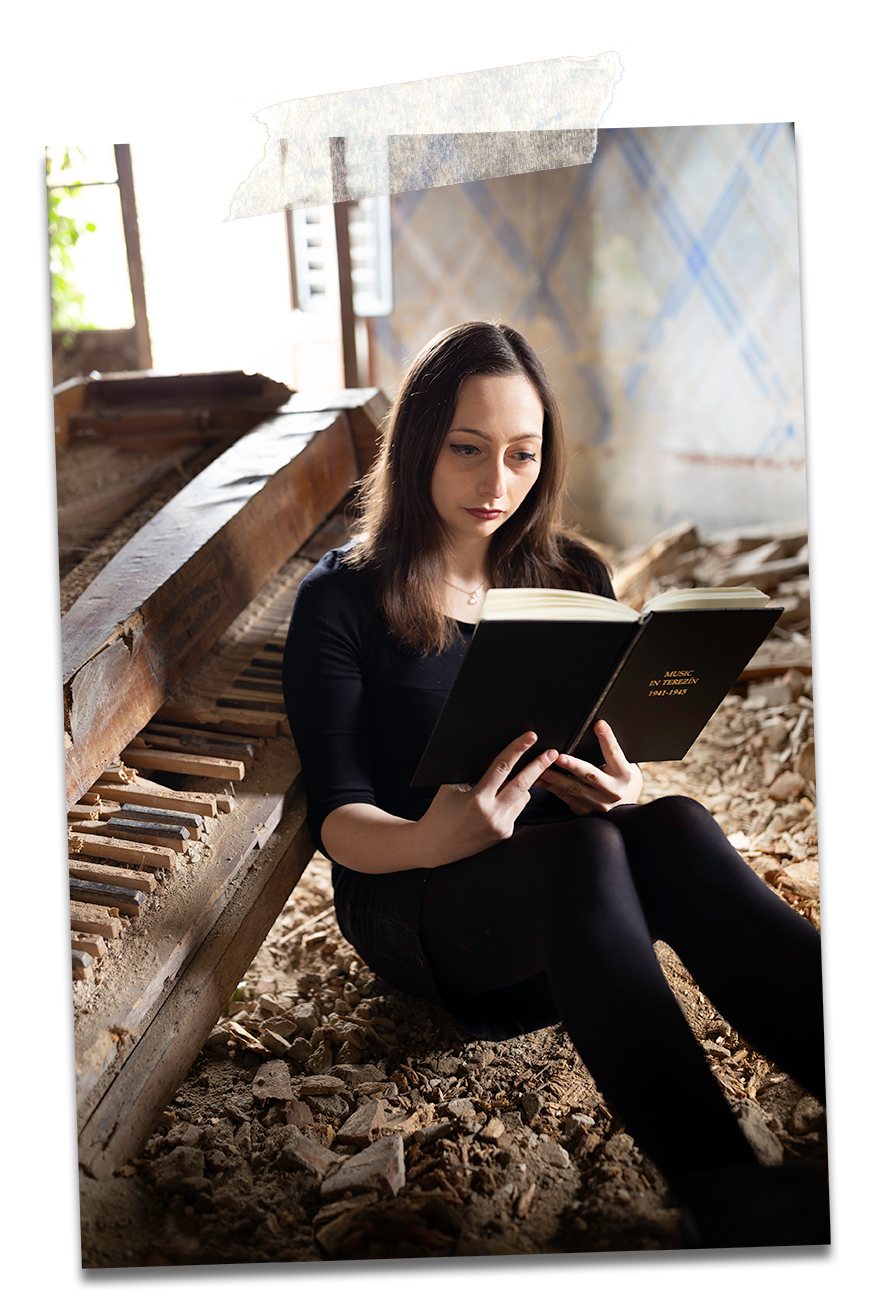A pianist’s haunting journey into the music of Theresienstadt and its inspirational story of creativity and resistance in the darkest of times.

“We left the camp singing” is an ever-evolving performative project by Italian pianist Sofia Tapinassi. Involving music and videoclips, the project has the goal to share the story of musical activities in the Theresienstadt ghetto-camp, a unique camp located in Czechoslovakia, where the presence of a great number of talented artists, musicians and composers encouraged cultural life to flourish despite the desperate living conditions of the inmates.
Sofia started her research in 2020, when she came across some great piano compositions written in the camp. As she became more and more fascinated by the stories of the artists and musicians who were prisoners there, and with the hope of meeting one of the last Theresienstadt survivors, she began traveling across Europe to research and to interview Holocaust witnesses and their relatives. The meeting with Zdenka Fantlova, Inge Auerbacher and Michael Gruenbaum inspired Sofia to produce a documentary named “We left the camp singing”, which, together with her piano performances of music by composers Gideon Klein, Pavel Haas and Hans Winterberg, will accompany the public in discovering a little known perspective on the Holocaust, the spiritual resistance of the persecuted through Art and Music.

“We left the camp singing” is an educational documentary directed by Italian pianist Sofia Tapinassi and British producer James Dann. Involving music and exclusive interviews with Holocaust survivors, the project has the goal to share some memories of musical activities in the Theresienstadt ghetto-camp, a unique camp located in Czechoslovakia, where the presence of talented artists, musicians and composers encouraged cultural life to flourish despite the desperate living conditions of the inmates.


The documentary follows Sofia’s intense journey studying the music of composers who were imprisoned in Theresienstadt such as Pavel Haas, Gideon Klein and the more recently re-discovered Hans Winterberg, while she is also committed to meet some of the last survivors. The interviews Sofia conducted with Zdenka Fantlova, Inge Auerbacher and Michael Gruenbaum reveal the most emotional side of the film, an inspirational story of meeting between different generations in order to keep the memory of the Holocaust alive. The film, suitable for a broad audience, will accompany the public in discovering a little known perspective on the Holocaust, the spiritual resistance of the persecuted through Art and Music.
